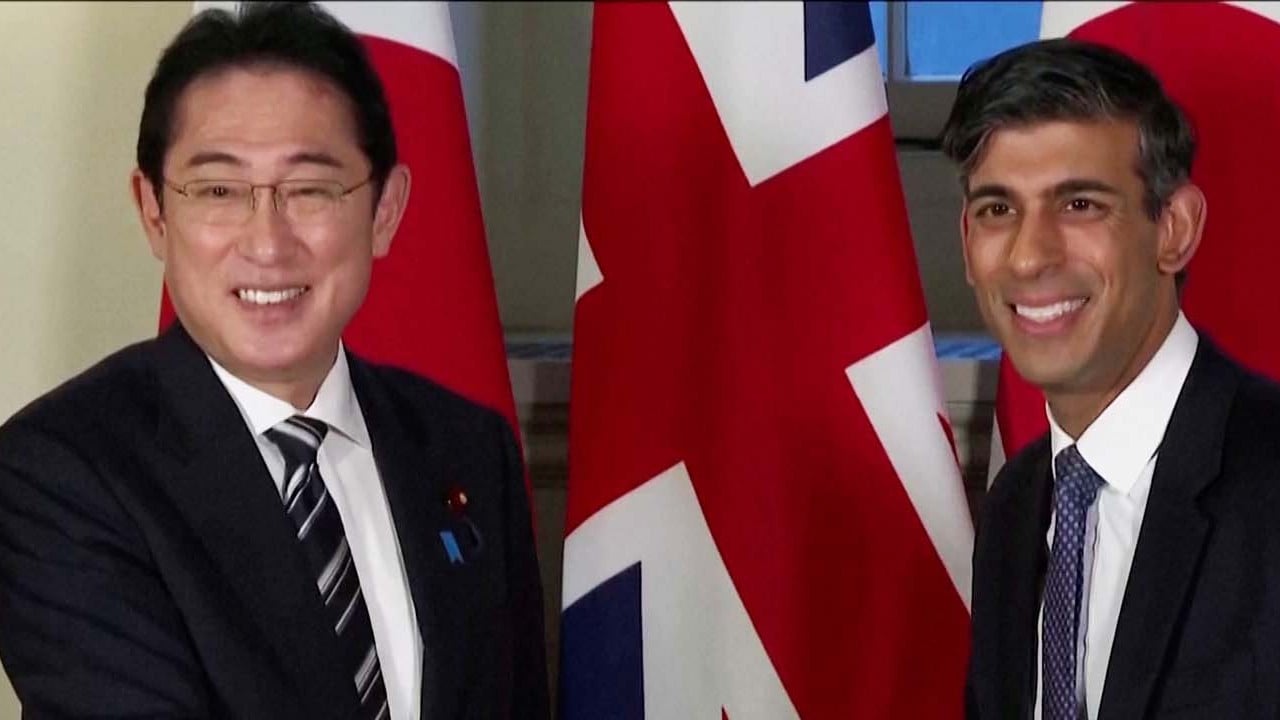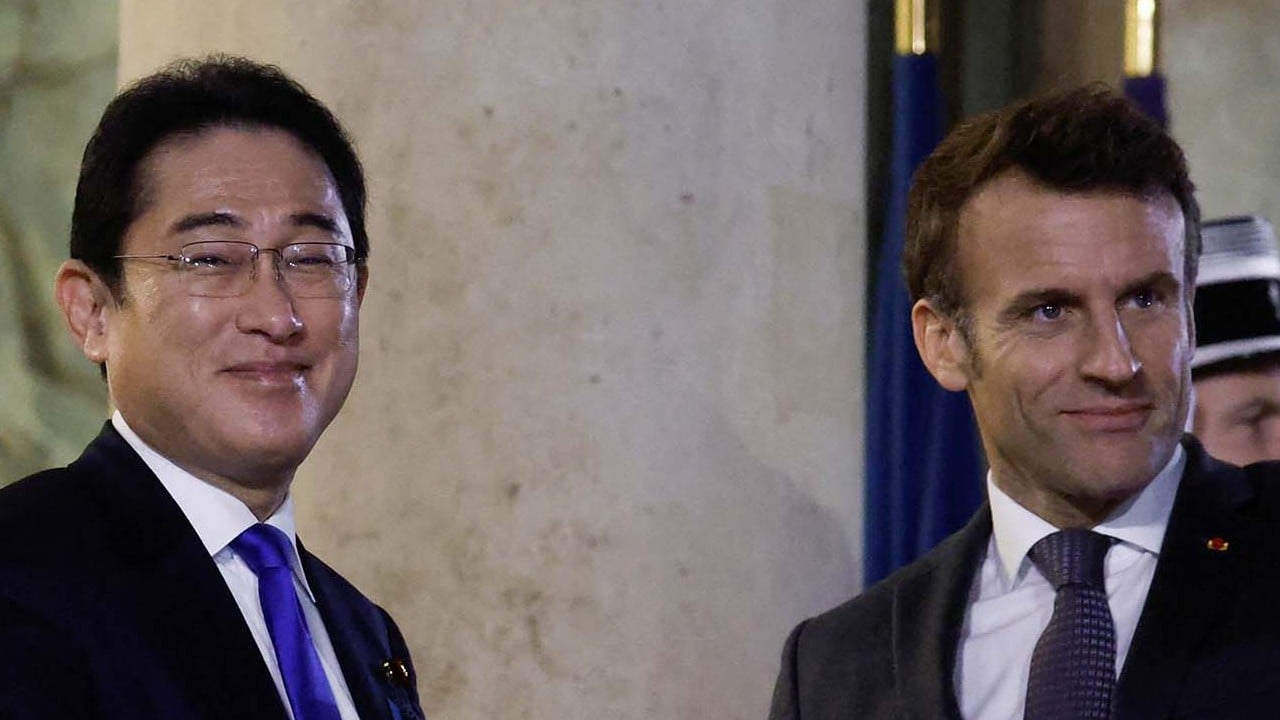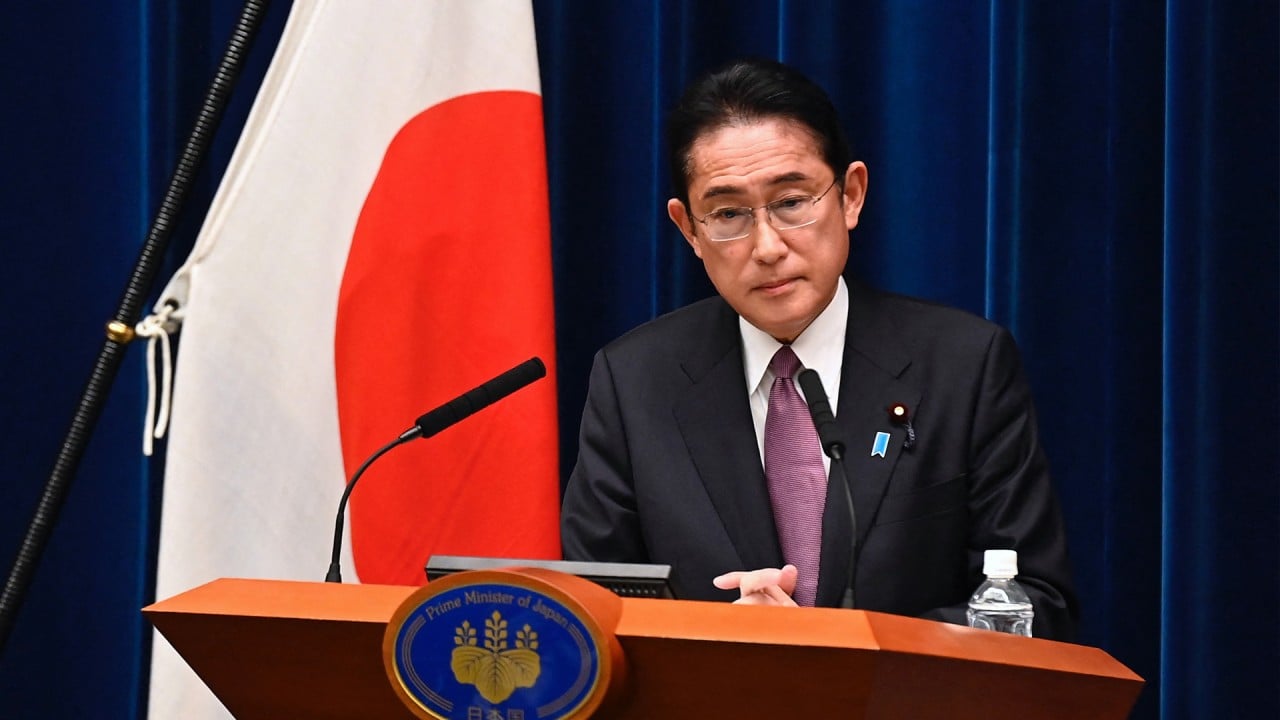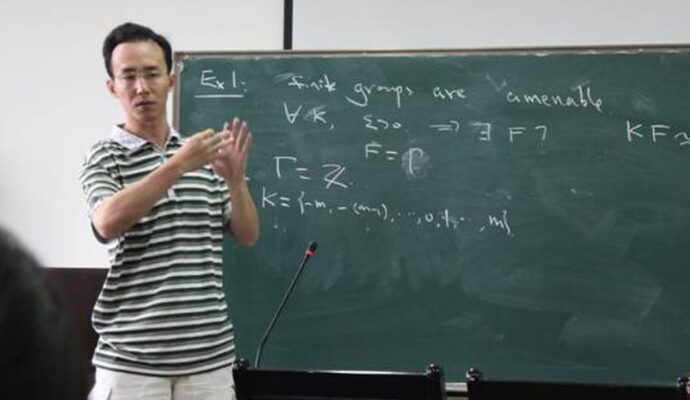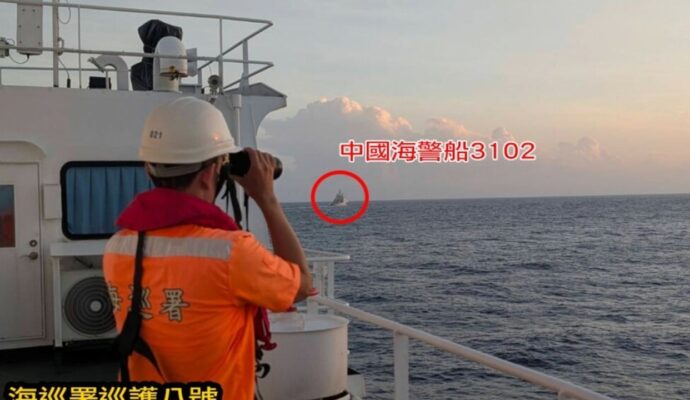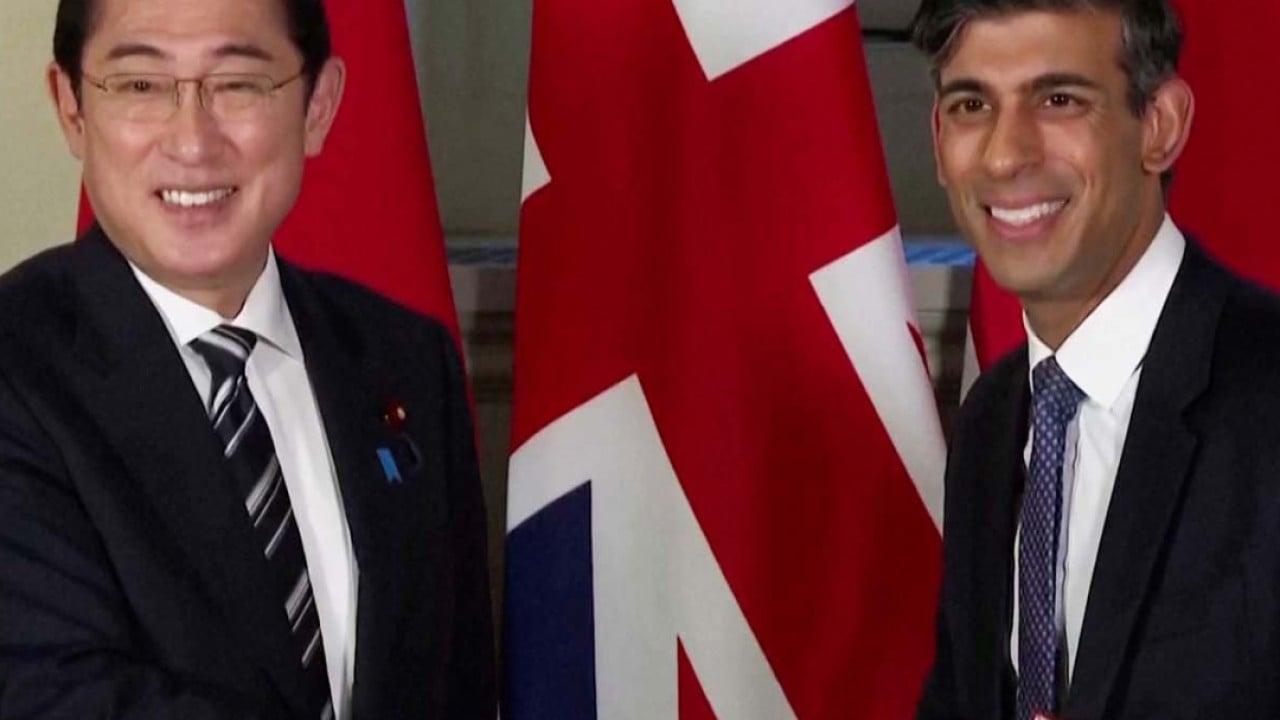
It was their first such meeting since Tokyo announced last month its biggest military build-up since World War II. While Japan’s announcement provoked fierce opposition from Beijing, Blinken said “we heartily welcome” the country’s break from its post-war pacifist stance.
According to observers, Biden and Kishida are expected to adopt the consensus reached between the four officials, and the US leader is likely to endorse Japan’s newly revised national security strategy.
Liu Jiangyong, aJapan specialist at Tsinghua University in Beijing, said the expansion of US-Japan security cooperation underlined Tokyo’s regional ambitions and its growing importance to Washington’s alliance-based efforts to encircle and contain China.
Liu said the two-plus-two talks not only paved the way for Kishida’s first visit to the US capital since taking office in October 2021, but also set the tone for the G7 summit Japan will host in May.
“Japan’s further alignment with the US is deeply worrying, but not unexpected following its historic shift in defence policy, which will have a lasting and far-reaching impact on ties with China and the regional security landscape,” he said.
The unveiling of Japan’s controversial rearmament plan, which would allow Tokyo to possess pre-emptive strike capability and double its defence budget over the next five years, has already dealt a blow to the fraught ties between the East Asian neighbours.
Hayashi initially planned to visit China last month but he had to delay the trip because of “a scheduling conflict on the Chinese side”, according to Kyodo News. It would have been the first China visit by a Japanese foreign minister in three years.
“China presents an unprecedented and great strategic challenge,” Hayashi said on Wednesday. “Japan and the US will continue to be united in raising objections against China’s attempts to change the status quo in the East China Sea.”
The East China Sea is home to the disputed Diaoyu Islands, known as the Senkaku Islands in Japan, which are claimed by Beijing, Tokyo and Taipei.
Beijing lashed out at the latest US-Japan defence deal, saying it risked targeting “imaginary enemies” and turning the Asia-Pacific into a geopolitical “wrestling ground”.
“China is a cooperation partner for all countries and poses no challenge to anyone,” Chinese foreign ministry spokesman Wang Wenbin said on Wednesday.
Chinese state media, including China Daily and Global Times, also voiced concerns on Wednesday about Kishida’s efforts to strengthen the anti-China alliance during his week-long trip to five Group of 7 member countries: France, Italy, Britain, Canada and the US.
During Kishida’s visit to London on Wednesday, Britain and Japan signed a reciprocal access agreement to allow them to deploy forces to each other’s countries.
British Prime Minister Rishi Sunak called it the most important defence treaty between London and Tokyo since 1902.
Shi Yinhong, a professor of international affairs at Beijing’s Renmin University, said Kishida’s five-nation trip was aimed at bolstering the military alliance with the US and other Western powers against China, in addition to rallying support for Japan’s new defence strategy.
“Japan has been the most active supporter of the US on China and his trip to Britain and elsewhere will substantially strengthen security cooperation and contingency preparations in the East China Sea and around Taiwan by Japan, the US and their allies,” he said.
“It is clear that Japan under Kishida, and his predecessor Yoshihide Suga, is determined to pursue closer alignment with the US regardless of its impact on Sino-Japanese ties.”
According to Shi, Kishida and Biden are expected to unveil further action plans in a bid to deter Beijing from using military force to address unresolved territorial and other disputes.
“It is a deterrence strategy that seeks to prevent a possible military conflict with China by all means,” he said.
Shi noted that despite the growing distrust and enmity, Beijing, Tokyo and Washington have shown strong willingness to avert conflicts and a head-on collision.
With Japan re-emerging as an active military power, Liu was also pessimistic about the future of the China-Japan rivalry.
“Old wounds on history, territorial disputes and other differences have yet to be solved, and now we have to deal with so many new irritants,” he said. “It is almost meaningless for Hayashi to visit China as neither side appears ready to make concessions and solve the problems through diplomatic talks.”
“It would be hard to predict how far bilateral ties will decline in the next five to 10 years. But it’s almost certain that more trouble lies ahead.”
